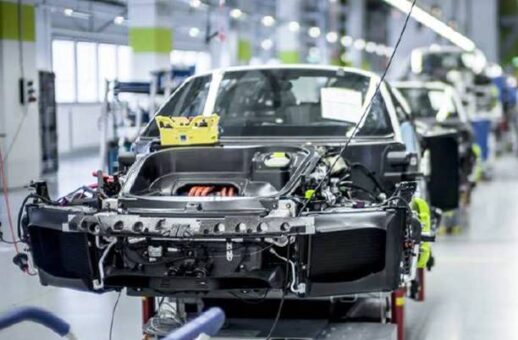Karachi, February 29, 2024 – Auto manufacturers in Pakistan are sounding alarms over a staggering 680% surge in car imports during the first six months of the current fiscal year, raising fears of a collapse in the domestic industry.
The influx of used cars has seen a significant increase, reaching around 16,500 units compared to approximately 2,100 units during the same period last year.
According to a report released by the Indus Motor Company Limited on Thursday, members of the Pakistan Automotive Manufacturers Association (PAMA) anticipate a substantial adverse impact on the locally manufactured car industry. The surge in car imports has led to a decline in the sales and production figures of PAMA members for locally manufactured Passenger Cars (PC) and Light Commercial Vehicles (LCV).
During the first six months of the fiscal year, total sales for PAMA members dropped by 54% to 39,104 units, compared to 84,116 units in the corresponding period last year. Similarly, the total production of locally manufactured PCs and LCVs for PAMA members decreased by 55% to 39,738 units, down from 88,472 units produced during the same period in the previous year.
Indus Motor highlighted that the overall economy faced challenges such as a high fiscal deficit, elevated inflation rates, and an increase in power tariffs during the first half of the fiscal year 2023-24. However, positive signs were observed, including a reduction in the current account deficit on the external front, rupee stability against major foreign currencies, and improvement in the agriculture sector output.
Despite these positive indicators in the broader economy, the auto sector has remained subdued due to factors such as higher duties and taxes, high interest rates, limited availability of auto finance, and reduced purchasing power of consumers. The second quarter also witnessed demand contraction attributed to year-end phenomena.
Higher duties and taxes are evident, with the duty and taxes to consumers on vehicles above 2000 cc increasing from 30% to 50%, nearly double compared to the same period last year. Supply chain challenges have further impacted the auto sector, leading to a decline in automotive financing in the new Completely Knocked Down (CKD) market volume by 54% during the six months.
The auto-sector operated below 30% production capacity during the six-month period, the lowest in the last decade, resulting in frequent plant shutdowns. The combined sales of CKD and Completely Built-up Units (CBU) vehicles for the Indus Motor during the first six months ended December 31, 2023, decreased by 61% to 7,324 units, with a market share of approximately 18% according to PAMA. The production for the same period registered a 66% decrease, totaling 6,391 units.
The decline in production is attributed to low demand and persistent supply chain challenges. As auto manufacturers grapple with these challenges, industry stakeholders are closely monitoring the situation, urging for strategic interventions to safeguard the domestic auto industry from further setbacks.
